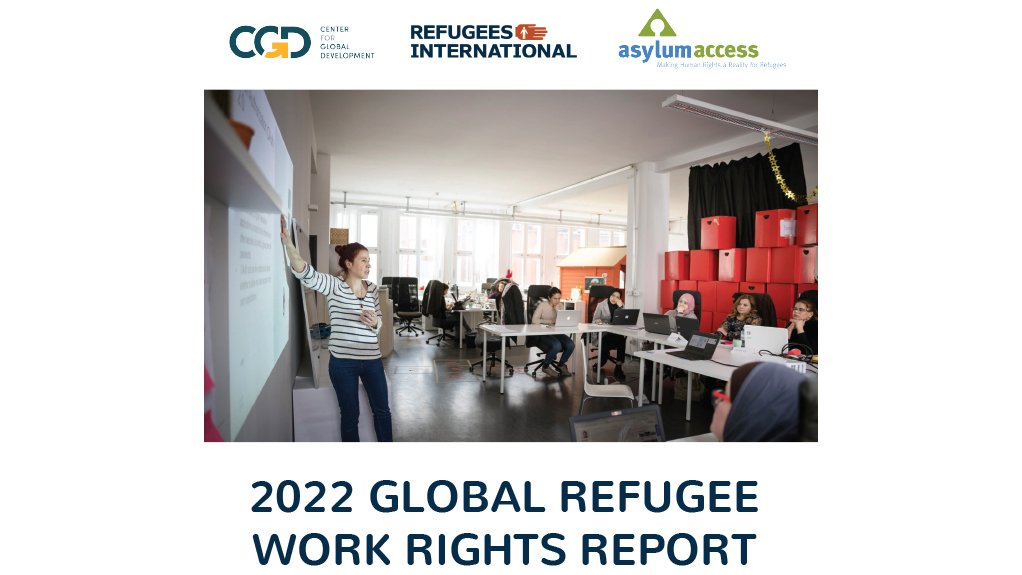- 2022 Global Refugee Work Rights Report18.05 MB
Refugees’ right to work has been repeatedly recognized in international agreements—from the 1951 Convention Relating to the Status of Refugees to the 2018 Global Compact on Refugees—and research continues to demonstrate the benefits of this right for refugees and their host countries alike. Yet most refugees today face significant legal and practical barriers to full economic inclusion in the labour markets of their host countries.
While these barriers are widely discussed in general terms, a systematic, public documentation of these barriers is important to advance the efforts toward economic inclusion. For instance, under Objective 2 of the Global Compact on Refugees, to “enhance refugee self-reliance,” two of the four indicators are the proportion of refugees with access to decent work and the proportion of refugees who are able to move freely within the host country. In addition, advocates and researchers have called for a Refugee Policy Index to factor into funding decisions.
Measuring these indicators, however, is a significant challenge. In its 2021 Indicator Report, the United Nations High Commissioner for Refugees (UNHCR) notes that “there is a need to strengthen the measurement of decent work, including by . . . developing the measurement of de facto access to work (e.g., using household surveys).” We view this report and accompanying dataset as contributing to this effort.
In this project, produced by researchers at the Center for Global Development (CGD), Asylum Access, and Refugees International, we assess refugees’ work rights across the globe. We examine different dimensions of work rights both in law (de jure) and in practice (de facto) across 51 countries that were collectively hosting 87 percent of the world’s refugee population at the end of 2021. Combining legal documents, country-level reports, news articles, and input from more than 200 practitioners with knowledge of refugees’ livelihoods and use of services, we evaluate the de jure and de facto situation within a standardized framework. We believe that the findings and accompanying dataset will be critical tools for policymakers, practitioners, and researchers on refugees’ work rights.
Report by the Center for Global Development
EMAIL THIS ARTICLE SAVE THIS ARTICLE ARTICLE ENQUIRY
To subscribe email subscriptions@creamermedia.co.za or click here
To advertise email advertising@creamermedia.co.za or click here











